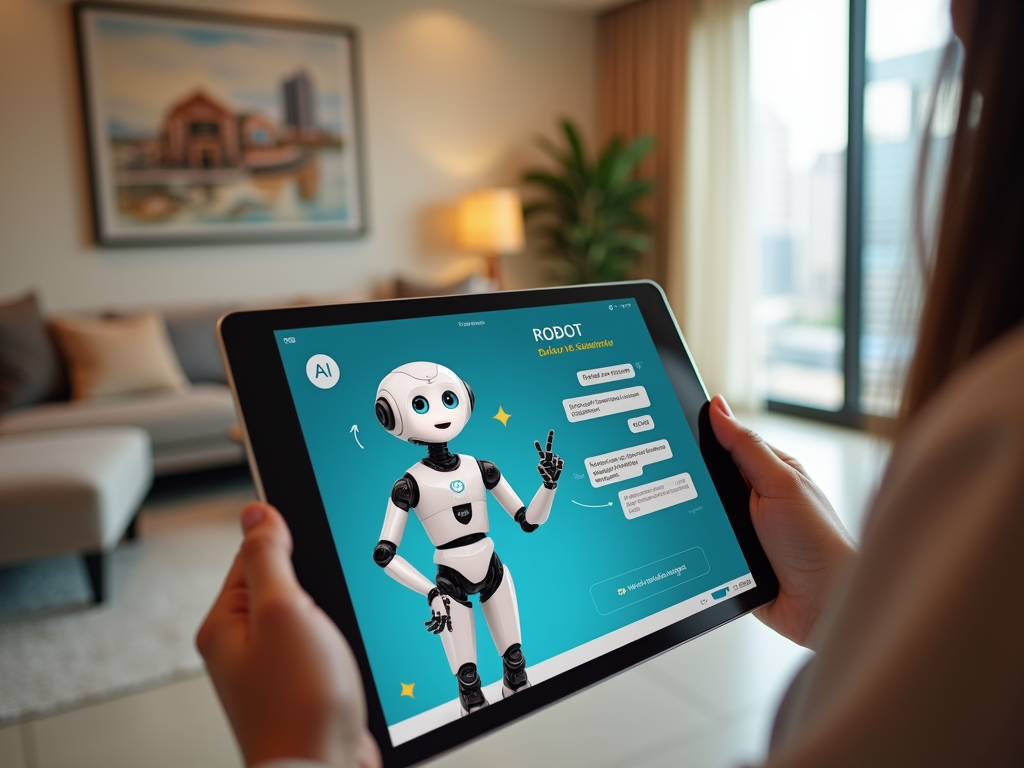
The Role of Artificial Intelligence in Dubai’s Real Estate Sector
The integration of artificial intelligence (AI) into Dubai’s real estate sector is redefining the landscape of property management, investment, and sales. With its robust technological infrastructure and strategic focus on innovations, Dubai is embracing AI to enhance operational efficiency, improve customer service, and provide valuable insights for future developments. By leveraging AI tools and algorithms, stakeholders in the real estate market are able to make better-informed decisions, optimize their resources, and align with global trends. This article explores the multifaceted role AI plays in transforming Dubai’s real estate industry.
Transforming Property Search and Valuation

AI is significantly improving how buyers and sellers navigate the real estate market in Dubai. Traditional property search methods are often time-consuming and can lead to information overload. With AI, property platforms can now offer personalized recommendations based on user preferences, historical data, and market trends. This evolution allows for a more streamlined experience as customers can find properties that fit their specific requirements with just a few clicks.
Moreover, AI-driven valuation tools are increasingly being used to assess property values accurately. By analyzing various factors such as location, property features, and market fluctuations, these tools provide real-time data that helps both buyers and sellers understand fair market prices. This dynamic aids in closing deals more efficiently and builds user trust in the accuracy of resources provided by real estate agencies and platforms.
Enhancing Customer Service with Chatbots

Artificial intelligence has also paved the way for improved customer service within Dubai’s real estate sector. AI-powered chatbots are now a common feature on real estate websites, offering instant support to potential buyers and tenants. These chatbots are programmed to handle inquiries about property listings, schedule viewings, and provide detailed information about neighborhoods. This tech alleviates the burden on real estate agents, allowing them to focus on more complex tasks.
Key benefits of AI chatbots in the real estate industry include:
- 24/7 availability for customer queries.
- Immediate responses, reducing wait times for clients.
- Consistent information delivery, minimizing human error.
- Data collection to understand customer preferences better.
- Integration with other tools for a cohesive user experience.
Data Analytics and Predictive Modeling
With the increasing availability of data in Dubai’s real estate market, AI plays a crucial role in analytics and predictive modeling. By harnessing vast amounts of data from various sources, AI algorithms can identify trends and patterns that inform investment strategies, development projects, and market forecasts. This data-driven approach is essential for stakeholders aiming to mitigate risks and maximize returns on investments.
Real estate developers, for instance, can utilize predictive modeling to assess the potential success of new projects. By analyzing factors such as population growth, economic indicators, and consumer behavior, AI offers insights that assist in making strategic decisions about where and when to build. Similarly, investors can use these models to identify lucrative opportunities within the market, making AI a vital tool for informed decision-making.
Streamlining Property Management
AI is revolutionizing property management in Dubai by enabling more efficient operations and enhancing tenant experiences. Smart property management systems powered by AI automate tasks such as maintenance scheduling, rent collection, and tenant communications. This shift toward technology allows property managers to focus on strategic planning and decision-making rather than getting bogged down with routine workflows.
Additionally, AI technologies can monitor building conditions, predict potential maintenance issues, and alert property managers before small problems escalate. This proactive approach ensures a higher standard of living for tenants and helps property owners protect their investments. Through AI-driven analytics, managers can also gauge tenant satisfaction levels and adjust services accordingly to improve retention rates.
Conclusion
Artificial intelligence is undoubtedly reshaping Dubai’s real estate sector. By streamlining processes, enhancing customer interaction, leveraging data analysis, and contributing to smart property management, AI is creating a more efficient, transparent, and user-friendly environment for both buyers and sellers. As technological advancements continue, it is expected that AI will further define the future of real estate in Dubai, setting new standards that may soon be benchmarks for global markets.
Frequently Asked Questions
- How is AI affecting property prices in Dubai?
AI tools provide accurate valuations based on real-time data, facilitating fair pricing and informed negotiations between buyers and sellers. - Are AI chatbots effective in real estate?
Yes, they greatly improve customer service by offering immediate responses to inquiries and 24/7 support, enhancing the overall customer experience. - What data does AI analyze in the real estate sector?
AI analyzes a range of data, including market trends, demographic information, property features, and economic indicators to inform various real estate strategies. - Can AI predict future real estate trends?
Yes, through predictive modeling, AI can identify potential market shifts and investment opportunities, aiding stakeholders in strategic decision-making. - What are the benefits of AI in property management?
AI streamlines routine tasks, enhances maintenance processes, improves tenant engagement, and optimizes operational efficiency for property managers.
